Meeting Health Care and Social/Emotional Needs
— A FOSTER PARENT’S GUIDE —
How to Meet Your Child’s Physical and Mental Health Care Needs
A top priority of all parents should be the physical and mental health needs of your child. As a foster parent, this is especially true if your child’s needs are more significant due to prior maltreatment, lack of previous health exams, or a disability. The new responsibilities of scheduling, rescheduling, and tracking your child’s physical and mental health appointments may feel overwhelming while juggling the rest of life’s obligations. That’s why these strategies are here for you as you balance it all:
Have a calendar or make a list for appointments
It can be hard to keep track of everything happening in your own life, let alone in your child’s life. Keeping a calendar of your child’s appointments in your home, on your phone, at work, or in all these places can help take some stress away as you stay on track. Having a home calendar with your whole family’s appointments written down can be especially helpful as you manage everyone’s schedules, including non-health-related meetings, appointments, and home visits required for your child in care.
Keep detailed records of your child’s medical care
Make sure your agency provides all the necessary health information needed before going to any medical appointments with your child. Keep a record of every medical appointment you and your child attend, as well as detailed notes on what you, your child, and the healthcare professional discussed so that you can relay this information easily and accurately to your case workers.
Ask your assigned Case Worker or Supervisor for guidance (312) 346-3383
If you are having trouble scheduling appointments or finding appropriate health providers for your child, make sure to reach out to us. We can help point you in the right direction, so then you can take matters back into your own hands.
Understand your child’s specific health needs
It is critical for you as a parent or foster parent to be up to speed regarding your child’s particular health needs, such as allergies, diabetes, physical disabilities, or mental health issues.
- Step 1: Know what your child may or may not be diagnosed with, as well as what they may be at risk for.
- Step 2: Understand what these health concerns truly entail.
- It’s important to ask your child’s health professionals what the best care plan is for them, and what’s needed to create the best environment and quality of life.
- If your child has a physical disability, your house may need accessibility features.
- If your child needs mental health support, they may show behavioral issues as well. In this case, it’s important to ask your agency if they have training in helping your child’s behaviors or can provide you with resources to seek out. Remember that sometimes behavioral problems can be rooted in mental health issues that do not have a specific diagnosis, so consult a mental health professional if your child has persisting issues.
How to Promote Social and Emotional Development for Your Child
Humans are social and emotional creatures. We have a range of feelings throughout each day, and a lot of us require frequent social interaction. Just like adults, children also have these needs. The difference is, as a foster parent, you are a crucial component of your child’s social and emotional development. One of the most critical aspects of helping your child develop social and emotional skills is understanding where they should be at with these skills in relation to their same-aged peers—are they reaching the milestones they are generally supposed to at their age?
Here are some ways to promote your child’s social and emotional development:
- If your child is on the verge of a meltdown, try to distract them: Remove them from whatever situation may be causing these feelings, then try to complete a different activity to take their mind off things.
- If your child is having a meltdown, remember to not take it personally and remain calm: Use simple language in a calm tone when speaking and see if you can understand why these emotions arose, all while ensuring you are in a safe environment.
- Do you know your child’s triggers? Knowing these can help you prepare for triggering situations or avoid them altogether.
- Give your child choices! This can empower your child, help them feel in control, and even lower possible frustration.
- Listen to your child, especially when they are telling you their opinions or concerns: Watch their body language and non-verbal communication, as it may be how they express their concerns as well.
- Make sure to give your child realistic expectations during any task or activity: If you know it is something they really struggled with in the past, try to simplify the activity so they don’t get so frustrated.
- Teach your child, from a young age if possible, the words they can use to describe the emotions they feel: Try to teach them self-regulation techniques as well, like deep breathing, taking a walk or break, or counting down from 10.
- Try to create predictable routines: Create a stable schedule, or if things pop up precisely explain what they will be doing—going to the doctor, the store, the playground, etc. You can also create or download visual schedules for them to follow.
REFERENCES
Buehler, Cheryl & Rhodes, Kathryn & Orme, John & Cuddeback, Gary. (2006). The potential for successful family foster care: Conceptualizing competency domains for foster parents. Child welfare. 85. 523-58.
1, 2, 3, & 4. (2006). The Potential for Successful Family Foster Care: Conceptualizing Competency Domains for Foster Parents. Child Welfare, 85(3), 523–558. https://www.childwelfare.gov/pubPDFs/preparing_youth.pdf
https://www.ca-ilg.org/sites/main/files/file-attachments/ourchildrenactionguide22page.pdf?1481647573
Coakley, T.M., Cuddeback, G., Buehler, C., & Cox, M.E. (2006). Kinship foster parents’ perceptions of factors that promote or inhibit successful fostering. Children and Youth Services Review, 29, 92-109.
Franck, K. (2001). The characteristics of kinship and nonkinship care children and their families of origin. Unpublished master’s thesis, University of Tennessee.
Jacobvitz, D. (2002). Promoting resiliency in children and youth living in low-income families. Paper presented at the annual conference of the National Council on Family Relations, Houston, TX.
Search
Categories
- Blog (15)
- Grants and Awards (5)
- News (75)
Lawrence Hall is a 501(c)(3) organization. Gifts are deductible to the full extent allowable under IRS regulations.
©2025 Lawrence Hall All rights reserved. Site Construction by WorkSite









